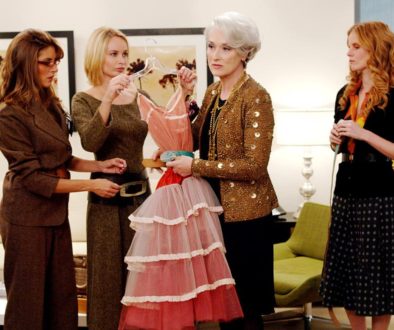If we can do more to prepare children to be better parents, workers and citizens, we can create a better world

Consider this reality. When they grow up, they are going to be parents, workers and citizens. Will they be prepared to be the best parents possible and shape future generations to help create a better world? How many of them will turn into outstanding workers and how many of them will just dial it in? How many of them will stand up as citizens when the situation calls for it?
And then there’s this. Some children grow up in families where their parents might not be there for them or create the best environment for their growth. Some children will encounter more than their fare share of bullying. Even if not bullied, they will most definitely encounter peer pressure that could be directed in undesirable ways. Some will grow up in areas with gangs that offer something they may crave.
Are we doing everything possible to prepare our children for the roles and world they will join? Are we doing everything possible to help our children walk through all they might face during their formative years? Even if you are a great parent and know you are doing all you can, there is still more that can be done to prepare them outside of your home.
K-12 should be a leadership development factory
I believe we need to develop children as leaders starting in kindergarten. Leadership development should be woven throughout the K-12 curriculum. While this may involve specific learning modules appropriate for each grade, it involves a lot more than that.
When every teacher sees leadership development as a part of their job, they will recognize leadership teaching moments in the middle of teaching history, English, math, science, art, music and physical education. Developing children as leaders is then woven into every subject and threaded through the entire K-12 experience.
The best run organizations have hourly employees acting as leaders
This idea extends something to its logical conclusion I’ve been talking about for a long time. When you asked executives if they have ever noticed an hourly employee acting as a leader, they all say they have. I’ve been observing hourly employees taking on leadership roles when a situation called for it since the 70’s.
The best run operations and offices have hourly employees who frequently act as leaders. In operations and offices that don’t run so well, you will discover a lack of hourly employee leadership. Hourly employees acting as leaders seems to be a major factor affecting an organization’s performance.
Now imagine what would happen if most entry level employees were already leaders? If leadership at all levels can have such a dramatic impact on how well organizations run, shouldn’t we be developing our children into leaders so they are ready to lead in the workplace?
Good parents are leaders
Then consider the role of leadership in parenting. Good parents are leaders. If you have to order and direct your kids around all the time, how do they feel and how do they grow up? Of course, there are always occasions where a parent has to put their foot down and demand that something be done or stopped.
But good parents only have to do that some of the time because they are able to voluntarily influence their kids to do things so much of the time. Good parents effectively lead their kids and that results in those kids growing into more responsible adults and leaders.
If every child is going to grow up to be a parent and a worker, when might be a good time to start preparing them for those leadership roles?
Child leaders can influence their parents
What about those children who come from a home where their parents are not so effective at parenting or downright awful at it? I’m sure most teachers have wished they had the time and energy to regularly work with those parents. It can be frustrating for teachers to realize that there is something affecting the children they teach which is beyond their power to influence most of the time.
If the children of these parents were developed as leaders, there would come a point where some of them would start leading their parents. They wouldn’t take over the home obviously. But through their growing capacity to exert voluntary influence, they could guide their parents toward what they really needed from them.
While this isn’t going to happen with every child in these situations, it would definitely increase the number of children who had enough confidence and skills to expand their influence at home. When children lead, they can help their parents become better at parenting.
Child leaders can better handle peer pressure, bullying and gang influence
What about those children who are being adversely affected by peer pressure or gangs? Once again, as a child’s leadership capacity grows, many of them will become more effective at handling these pressures and influences. If every child was developed as a leader starting in kindergarten, we could probably reduce the number of youth who get involved with gangs, get in trouble with the law and drop out. We would increase the number of children who could better deal with bullies.
Every child a leader can change the world
Am I being too idealistic about the potential benefits of children being developed into leaders? Honestly, I don’t think so. While not every child will develop the same level of leadership capacity, they will all learn and grow in ways that are more likely to make them responsible, contributing adults. And we will end up with a lot more young adults who can lead at work, in the home and around the community.
Learning to be an effective leader embodies some of the core traits necessary to succeed as an adult. Children need to learn more than a variety of subjects. While the primary responsibility for that falls on parents, clearly our schools can play a bigger role.
Our schools can help them learn life skills and attitudes that will better prepare them for the “real world” and give them a greater capacity to improve that world. When children learn life skills and attitudes 24 hours a day and not just at home, they will be much better prepared to apply those core traits. From what I know, nothing could help them more in this regard than learning to be an effective leader.
Questions?
Schedule a phone conversation with Don Shapiro, President of First Concepts Consultants, to answer your questions and explore how this discussion could help your organization.
_____________________________________________________________________________________________
_____________________________________________________________________________________________
More Articles on Leadership
11 Questions to Learn How Effective a Leader You Are
Everyone Needs to Lead Some of the Time
What Is a Leader and What Is Leadership?
We Become Great Leaders by Working with Great Leaders
We Need People Who Can Lead Regardless of Their Title




11 Questions to Learn How Effective a Leader You Are
July 13, 2016 @ 12:51 pm
[…] Every Child a Leader […]
Is there such a thing as a bad leader?
September 7, 2016 @ 11:14 am
[…] Every Child a Leader […]
Leading change is about effective leadership
October 11, 2016 @ 11:32 pm
[…] Every Child a Leader […]